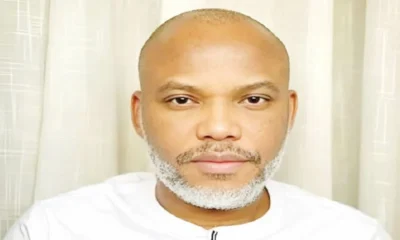Tech
Federal Ministry of Communications, Innovation & Digital Economy Announce N2.8billion Google support to Advance AI Talent Development in Nigeria
Federal Ministry of Communications, Innovation & Digital Economy Announce N2.8billion Google support to Advance AI Talent Development in Nigeria
The Federal Ministry of Communications, Innovation & Digital Economy (FMCIDE) today announced new support from Google to accelerate AI talent development across Nigeria. This support, which is provided through a N2.8billion grant from Google.org to Data Science Nigeria, will bolster the Ministry’s ongoing AI-driven initiatives to upskill youth and under- and unemployed Nigerians, with a focus on AI skill development and education. This grant is part of Google.org’s broader $5.8million commitment to support digital skills programs across Sub-Saharan Africa.
Dr. ‘Bosun Tijani, Honourable Minister of Communications, Innovation & Digital Economy, emphasised the importance of this support in driving Nigeria’s digital transformation: “This support from Google is a testament to our commitment to positioning Nigeria as a leader in AI innovation. By leveraging Google’s expertise and resources, we are creating opportunities to equip Nigerians with the skills they need to thrive in the global digital economy. This is a major step forward in our journey towards a more inclusive and innovative future for all Nigerians.”
The N2.8billion Google.org grant will support Data Science Nigeria’s work with the Federal Ministry’s AI talent development programs, including:
DeepTech Ready Upskilling Programme: To provide 20,000 young Nigerians with advanced technical skills in data science and AI, preparing them for careers in this rapidly growing field.
Experience AI Programme: To equip 25,000 educators with the tools and resources to teach 125,000 young people about AI, inspiring the next generation of AI innovators.
Government AI Campus Programme: To upskill policymakers and public servants in AI policymaking, ensuring that Nigeria’s AI policies are developed and implemented responsibly.
Earlier this year, the Ministry set the stage for AI integration in Nigeria by hosting the National Artificial Intelligence Strategy (NAIS) Workshop, followed by the release of the National AI Intelligence Strategy. This strategy aims to leverage AI to drive economic growth, improve governance, and enhance the well-being of all Nigerians. This new support from Google.org will build on this strong foundation, further cementing Nigeria’s position as a leader in AI innovation on the continent.
In a significant step toward advancing the AI ecosystem, the Ministry and Google also announced the selected beneficiaries of the AI Fund, established by the National Centre for Artificial Intelligence and Robotics (NCAIR) in collaboration with Google. The Fund will see each selected startup receive ₦100million in funding, along with up to $3.5million in Google Cloud Credits to help scale their solutions. Additionally, these startups will gain access to Google’s world-class AI tools, mentorship from Google’s AI experts, and opportunities to connect with a global network of innovators and partners.
The 10 startups selected for the AI Fund are:
BetaLife Health: Leverages AI to predict demand and match blood types for Africa’s blood supply needs.
Bunce: AI-driven platform that centralises and personalizes customer engagement for businesses
CDIAL AI: Enables seamless text-to-speech and speech-to-text AI functionality in 13 languages across underserved regions.
Farmspeak: Leverages AI to support livestock farmers with disease detection and climate control.
Lendsqr: Streamlines lending operations using AI, empowering global lenders and borrowers.
ProDevs: Connects global companies with vetted African tech talent through AI-driven pre-classification and job matching.
Rana Energy: AI-powered energy management optimising sustainable power for underserved users.
SaaSPro Health: AI-driven healthcare documentation with tailored tools for Nigerian doctors.
Towntalk: Leverages AI to provide contextual security insights for African communities, empowering informed decision making.
Trade Lenda: Streamlines credit analysis for MSMEs using AI, facilitating access to financing.
By focusing on sectors such as healthcare, agriculture, education, and governance, the startups will play a crucial role in addressing local challenges and driving sustainable economic growth through AI.
Matt Brittin, President of Google for Europe, the Middle East, and Africa, shared Google’s commitment to Africa’s innovation ecosystem: “Across Africa, entrepreneurs are harnessing the power of technology, including AI, to address large-scale societal challenges. Google remains committed to supporting these innovators, helping them expand their impact across the continent and beyond. Our work in Africa has always been about unlocking the digital economy’s benefits for more people, and this collaboration continues that mission.”
This initiative aligns with a broader report highlighting the economic potential of AI in Nigeria. According to recent findings from Public First, Artificial Intelligence could add as much as $15billion to Nigeria’s economy by 2030. By equipping local entrepreneurs and innovators with the tools, resources, and training needed to leverage AI, this initiative seeks to harness that potential, further reinforcing why this collaboration is vital for Nigeria’s digital future.
It builds on Google’s N1.2billion commitment to Nigeria, announced in 2023, aimed at empowering 20,000 Nigerians through digital skills and economic growth programs.
Through this support, the Ministry, alongside Google, aims to build a sustainable AI ecosystem that will not only foster innovation but also drive economic and social impact across Nigeria.
Tech
Google acquires energy company Intersect for $4.75 billion
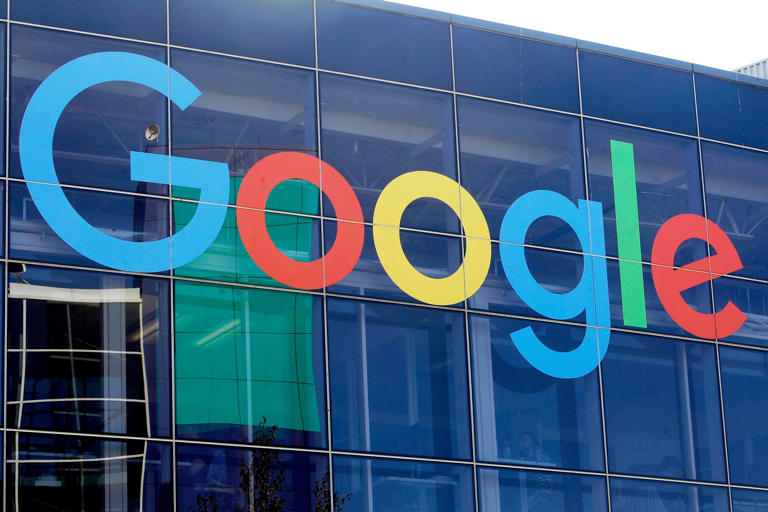
Google is acquiring energy infrastructure company ‘Intersect’ for $4.75 billion (approximately 7 trillion Korean won) to secure the power needed for its AI (artificial intelligence) data centers. The move aims to address the power issue, the biggest hurdle in expanding data centers. Google, which developed the ‘Gemini’ AI, is a so-called ‘AI full-stack’ company equipped with all AI-related technologies and services, including AI chips and cloud (virtual servers). The strategy is to directly manage the energy infrastructure needed to actually operate AI as well.
Reuters reported on the 22nd (local time) that Google is acquiring Intersect for $4.75 billion in cash. Google already holds a minority stake in Intersect, and through this acquisition, it will also secure the gigawatt (GW)-level energy and data center projects that Intersect is developing and constructing. Intersect is expected to be responsible for building Google’s data center power infrastructure in the U.S., based on its technology linking power generation facilities and power grids.
Sundar Pichai, CEO of Google and Alphabet, said, “Intersect will enable us to build power infrastructure more quickly and flexibly in line with the increasing demand for AI data centers,” adding, “It will also be an important partner in strengthening America’s energy innovation and technological leadership.”
Bloomberg reported that Intersect’s energy assets currently in operation or under construction in the U.S. amount to $15 billion (approximately 22.2 trillion Korean won).
◇Google increasing energy investments
Google has recently been increasing its investments in the energy sector. Although the company possesses AI chips (TPUs), Gemini, and search and cloud services, stable energy supply is essential to support these businesses.
To this end, Google is also investing in nuclear power technology. In October of last year, it signed a long-term cooperation agreement with small modular reactor (SMR) startup ‘Kairos Power’ to secure up to 500 MW (megawatts) of power. It is noted as the first case among big tech companies to publicly declare securing SMR-based power. Additionally, in August, Google and Kairos Power announced plans to build the next-generation SMR ‘Hermes 2’ in Oak Ridge, Tennessee. The goal is to commence operation in 2030.
Google is also restarting previously shut-down nuclear power plants to secure energy. In October, it announced that it will collaborate with ‘NextEra Energy’ to restart the Duane Arnold Nuclear Generating Station in Iowa, which was closed in 2020. The target restart period is between 2028 and 2029.
Google is also investing in renewable energy such as geothermal power. Since 2023, it has been supplying power to data centers through geothermal power generation with ‘Fervo Energy’ in Nevada, U.S.
Google is also actively investing in next-generation energy technologies that are not yet commercialized. In 2022, it made a large-scale investment in ‘TAE Technologies,’ which possesses nuclear fusion technology. Nuclear fusion power generation is a technology that applies the principle of energy creation in the sun, combining atomic nuclei to produce energy. It is called the ‘dream energy’ because it has abundant fuel resources, emits no carbon, and, unlike conventional nuclear power plants, does not produce high-level nuclear waste. However, it is assessed that more time is needed for commercialization due to technical challenges. Recently, TAE Technologies has accelerated the commercialization of fusion energy by merging with Trump Media Group (TMTG).
Tech
“I Lost $1.2 Million To Hackers On One Of My Apps. I Caught One Of The Hackers, And Instead Of Handing Him Over To The Police, I Employed Him To Work For Me.”- BLord

Anambra Born tech entrepreneur and businessman Linus Williams, popularly known as BLord, has shared an unusual story about how he handled a major cyberattack on one of his applications.
According to BLord, he lost $1.2 million to hackers who infiltrated one of his digital platforms. In the course of tracking the incident, he successfully identified one of the individuals involved in the breach.
Rather than handing the suspect over to security agencies, BLord said he made a strategic decision: he employed the hacker.
He explained that the hacker’s skills, though misapplied, were exceptional and could be redirected towards strengthening his company’s cybersecurity systems.
BLord noted that the decision was driven by a desire to turn a negative experience into an opportunity for growth and to better secure his business infrastructure.
Tech
MAN Honours Zobis Cable CEO, Ezeobi, at 37th AGM
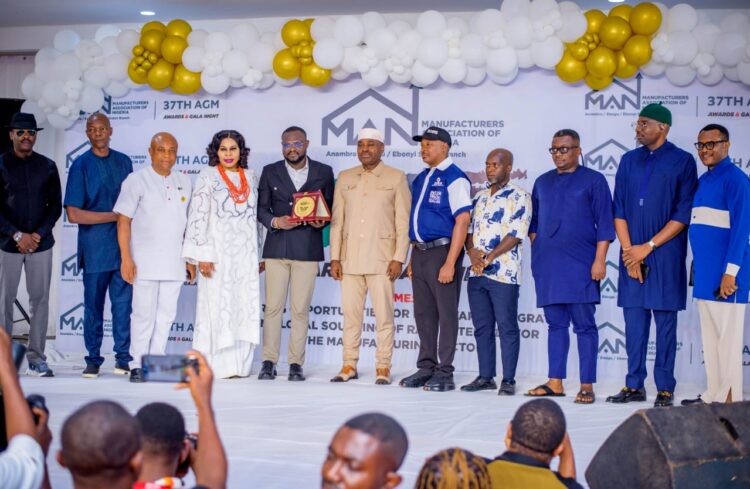
The MD/CEO of John Zobis Group, Mr. John Ezeobi, has again been honoured with another major industry prize in recognition of his contributions to local sourcing, innovation and the growth of Nigeria’s manufacturing capacity.
The prestigious award, “Pillar of Industrial Enterprise and National Impact,” which was conferred on him by the Manufacturers Association of Nigeria (MAN) — Anambra, Ebonyi and Enugu Zone, was presented during the association’s 37th Annual General Meeting, Awards & Gala Night at the International Conference Centre, Enugu.
coming barely three weeks after Ezeobi was nominated as the winner of The Sun’s Industrialist of the Year Award 2025 by the Management of The Sun Newspaper, a run of recognition that has further highlighted his rising profile in the South-East manufacturing ecosystem.
The latest award, it was gathered, celebrates Ezeobi’s deliberate investment in backward integration, his push for local sourcing of raw materials and efforts to strengthen domestic value chains, which MAN described as essential to reducing import dependence and creating jobs across the region.
Chaired by Chief Obinna Iyiegbu (Obi Cubana), the well-attended occasion, themed “Exploring Opportunities for Backward Integration and Local Sourcing of Raw Materials for the Manufacturing Sector,” brought together regulators, policymakers, manufacturers and industry stakeholders and also featured presentations, panel sessions and cultural performances, among other highlights.
Speaking at the event, the Keynote Speaker and Director-General of the Raw Materials Research and Development Council (RMRDC), Prof. Nnanyelugo Ike-Muonso, said the economic benefits of exploring Opportunities for backward integration and local sourcing of raw materials for the Manufacturing sector cannot be overemphasized.
Prof. Ike-Muonso told delegates that Nigeria spent over ₦3.53 trillion importing raw materials in the first half of 2025 alone, warning that such dependence continues to weaken the nation’s economy. He further argued that the proposed 30% Value Addition Bill, which would require a minimum local value addition before export, would be transformational if signed into law.
He also outlined the bill’s potential to expand GDP, generate hundreds of thousands of jobs and save foreign exchange by keeping more of the country’s raw-material wealth in domestic supply chains, boost local manufacturing, and generally reposition Nigeria as a regional industrial hub.
On his own part, the Governor of Enugu State, Dr. Peter Mbah, endorsed the call for stronger industry-academia partnerships and urged financial institutions to make affordable credit available to manufacturers who adopt backward integration. The governor, who was represented by his Deputy, Barrister Ifeanyi Ossai, described the policy pathway as key to moving Nigeria from resource export dependence toward higher-value industrial output.
Reacting via his social handle shortly after receiving the award, the Zobis Cable Boss expressed gratitude for the honour, describing it as a strong motivation to do more in driving local production, reducing import dependence, and strengthening Nigeria’s industrial base.
Ezeobi, who received the plaque from pioneer Nollywood star and legal practitioner, Barr. Kenneth Okonkwo, attested that the AGM provided a critical platform for renewed commitment to backward integration as a pathway to sustainable industrial development.
“The event highlighted the critical importance of backward integration and local sourcing of raw materials as strategic levers for strengthening domestic production, reducing import dependency, and building resilient, self-sustaining industries. A meaningful platform for driving progress and collaboration across Nigeria’s manufacturing sector,” he partly wrote.
Also speaking, the Chairman of MAN for the Anambra-Ebonyi-Enugu zone, Dr. Adaora Chukwudozie, described local sourcing as the pragmatic route to lowering production costs and stabilizing supply chains for SMEs and larger manufacturers alike. She welcomed RMRDC’s roadmap and invited state governments to partner in establishing raw-material corridors and shared processing facilities that would bring inputs closer to factories.
The event, which had His Eminence, Eze Eberechukwu Orji, Eze Aro, as the Royal Father of the Day, was also graced by other notable dignitaries and stakeholders, which include Senator Osita Izunaso, Dr. Gideon Chidiebere Osi, Ichie Sunday Ezeobiora , Chairman, Sunchi Farms; Mr Linus Williams Ifejika, Chairman Blord Group; Otumba Francis Meshioye, National President, Manufacturers Association of Nigeria; Dr. Ifeanyi Okoye, Chairman, Juhel Pharmacy; Chief Dr. Dan Chukwudozie, Chairman,Dozzy Group; Dr. Chike Obidigbo,Chairman, Hardis and Dromedas; Anambra Commissioner for Trade and Industry,Mr. Christian Udechukwu.







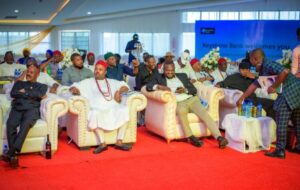

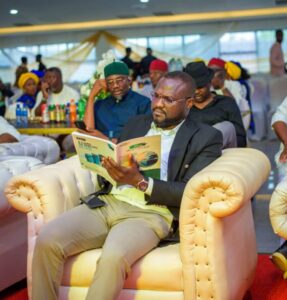




-
Business1 year ago
US court acquits Air Peace boss, slams Mayfield $4000 fine
-

 Trending1 year ago
Trending1 year agoNYA demands release of ‘abducted’ Imo chairman, preaches good governance
-

 Politics1 year ago
Politics1 year agoMexico’s new president causes concern just weeks before the US elections
-

 Politics1 year ago
Politics1 year agoPutin invites 20 world leaders
-

 Politics1 year ago
Politics1 year agoRussia bans imports of agro-products from Kazakhstan after refusal to join BRICS
-
Entertainment1 year ago
Bobrisky falls ill in police custody, rushed to hospital
-
Entertainment1 year ago
Bobrisky transferred from Immigration to FCID, spends night behind bars
-
Education1 year ago
GOVERNOR FUBARA APPOINTS COUNCIL MEMBERS FOR KEN SARO-WIWA POLYTECHNIC BORI









